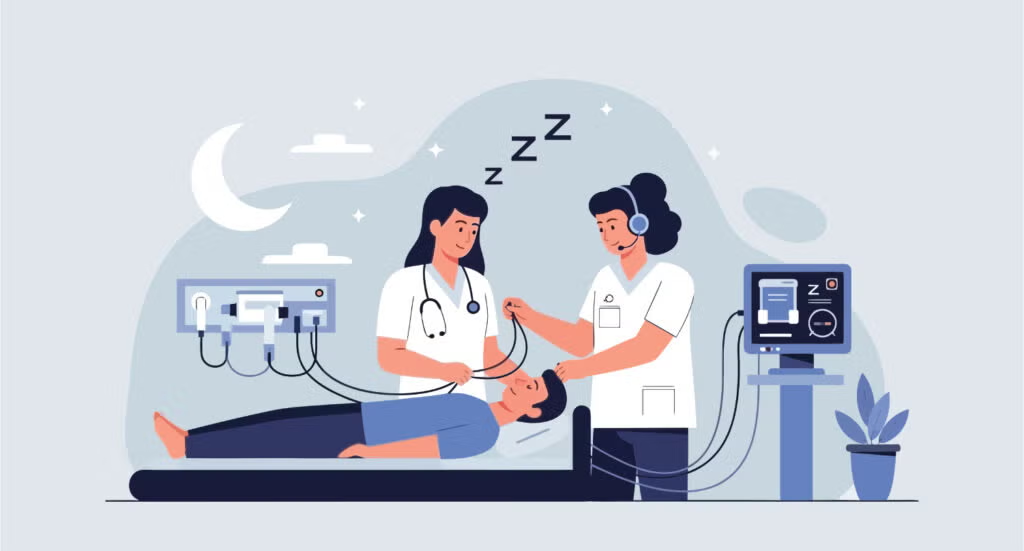Explore This Issue
November 2025Sleep breathing disorders are widespread yet often underdiagnosed conditions affecting millions of patients globally. Obstructive sleep apnea (OSA) involves both airway anatomy and physiology, making otolaryngologists uniquely positioned to help lead the multidisciplinary care of the OSA patient. The management of OSA requires evaluation of the upper airway and often includes optimizing continuous positive airway pressure therapy or determining a patient’s candidacy for alternatives, many of which are surgical interventions. The field is rapidly evolving, with new devices and procedures that are a far cry from the use of tracheostomy in the 1960s and 70s. Despite the explosion of innovation in the surgical treatment of sleep apnea, choosing the right patient for the right procedure remains a challenge. Sleep fellowship can help.
Subspecialty Certification in Sleep Medicine
For otolaryngologists interested in demonstrating advanced knowledge of sleep disorders, the American Board of Otolaryngology–Head and Neck Surgery offers subspecialty certification in sleep medicine. However, since 2011, double-board certification in sleep is only accessible to otolaryngologists who have completed an extra year of training in sleep medicine through an Accreditation Council for Graduate Medical Education (ACGME) fellowship program. As a result, the number of sleep medicine board-certified otolaryngologists has decreased, with only 34 surgeons completing a sleep-focused fellowship between 2017 and 2025, but the field could not be more exciting or ripe for greater otolaryngology involvement.
An increasing number of fellowship programs offer sleep medicine and sleep surgery and/or hybrid training. The hybrid programs integrate training with a sleep surgeon alongside the ACGME sleep medicine requirements, allowing graduates to read sleep studies and obtain dual board certification while advancing their surgical skills and understanding of patient selection and factors predictive of surgical success.
The State of Sleep Surgery Fellowships
A recent study by Kaffenberger et al. (Laryngoscope. doi: 10.1002/ lary.31749) explored trends among otolaryngologists completing sleep-focused fellowships. Between 2017 and 2023, 26 otolaryngologists completed a sleep-focused fellowship and were sent an anonymous survey assessing fellowship program characteristics and post-graduate job prospects. Of 19 respondents, the majority (53%) completed a hybrid ACGME-certified sleep medicine and sleep surgery program. Surgical exposure most commonly included hypoglossal nerve stimulators, pharyngoplasty, and nasal surgery, while exposure to other soft tissue and skeletal surgeries or investigational procedures varied.
The survey also highlighted the strong demand for dual board-certified otolaryngologists. Sleep-trained surgeons were highly coveted, receiving on average 2.4 job offers, with one-third reporting four or more offers. Additionally, 55% returned to their residency institution, and 90% secured positions in academic settings.

With more and more exposure in residency to the surgical techniques we need to look at options that don’t involve a year of lost revenue learning about sleep disorders and sleep studies. The majority of surgeons that do a sleep fellowship are not treating a bulk of sleep medicine diseases, they’re still focused on strictly obstructive sleep apnea.
The academy and ISSS should be focused on offering a fellowship in the ISSS that teaches those who are interested during a series of courses over a two year time span only involving 4 weekends over that time. A basic, advanced and sleep study deep dives into what we need to know out in practice. À la the FAAOA does for otolaryngologic allergy. Otherwise I’m concerned that in the future as everyone that was grandfathered will have a serious lack of availability of doctors in the next few years.